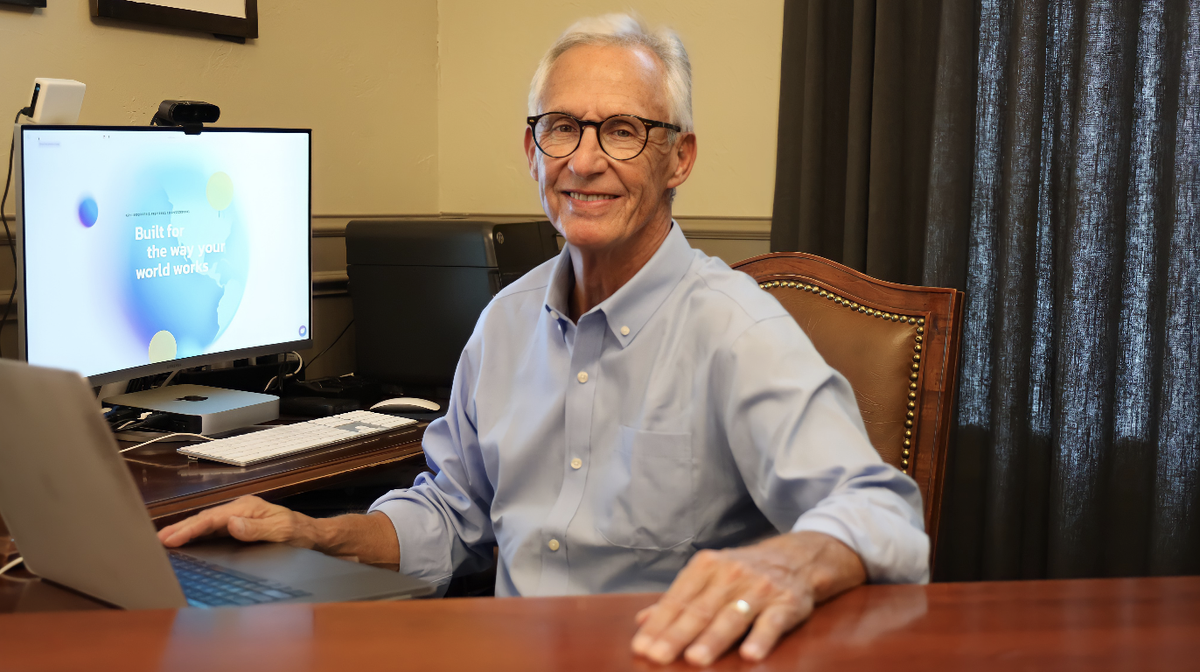With its worldwide network of Certified Solution Providers and best-of-breed manufacturing, distributing, and service partners, PSNI Global Alliance has witnessed first-hand how combined strengths and shared experiences can overcome almost any AV challenge, even during a global pandemic. PSNI represents more than 220 licensed service and integration offices, and is the largest global network of AV integrators spanning the largest geographical area in the world. PSNI chief executive Chris Miller talked with Systems Contractor News on how these elements are at the heart of The Alliance—and why choosing the right global partner is now more important than ever.
SCN: Even with the shockwaves of the past year or two, we have seen the PSNI Global Alliance continue to grow. What’s your secret?
Chris Miller: I’m not sure there is one—there are probably several! I believe it is our commitment and focus on building and maintaining social capital among all alliance stakeholders, even during times when we can’t be together. We know that when you bring together best-in-class technology providers and they work globally as one, then success is sure to follow.
But it’s so much more than just asking integrators to be a part of the network. It’s about building out the right team with a business process and a commitment to quality and excellence that makes it work.
I’ve studied the alliance model for years. Alliances exist in about every industry today for a purpose to reach and do more, efficiently and profitably. For PSNI, our strategic alliance combines the best of both worlds of resources and expertise which, in turn, drives innovation and delivers solutions with local experts across a global footprint.
[AtlasIED Joins PSNI as Worldwide Preferred Vendor Partner]
SCN: We have seen several announcements over the past year of new partners joining The Alliance. Why PSNI?
CM: We have added new CSPs in key global markets, but it’s a small number of those that inquire and apply that are approved by their peers. Once they hear and see our engagement process and structure—and how we are positioned for the future as a global technology service provider—they want to be a part of our unique alliance approach.
SCN: How are today’s broad and complex AV services delivered globally in the Alliance?
CM: The PSNI model has more than 220 service-centric offices worldwide. While the goal is to solve issues remotely when possible with help desk and system monitoring, there are times when having on-site support is necessary. Human intervention is complimentary and necessary in addition to help desks, adoption services, data management, and room manage that will possibly be stakes to remain at the table of enterprise technology users. We continue to evaluate and leverage the experiences of our CSPs to recommend and help build out global services solutions that align with what their users need.
[Intimately Global – PSNI Takes ‘Built for You’ Ethos to the Next Level]
SCN: How important is it to have a standardized process across The Alliance?
CM: Standards and process are the core DNA of The Alliance. Every one of our partners is committed to a principal standardized approach, ensuring that the quality and integrity of the consultancy, integration, training, and post-sales support is uppermost, wherever they are in the world. But there are many other factors that partners look for when selecting a global technology partner, and we have worked hard to deliver on our partner requirements.
SCN: From your experience, what do partners require from a global service provider?
CM: Our CSPs want to know that we have vetted and selected—with their approval—the very best technology solution partners in each key trade market in the world. The underpinning of The Alliance is trust and reliability. Utilizing industry experts in local compliance, currency, logistics, customs, taxation issues, and, of course, the technology itself, helps toward better business outcomes in every market around the world.
When choosing a global technology partner, you want to know as much about the skillset of that business—its expertise and its support capabilities—as its hardware. Our partners tell us they want subject matter experts, which makes perfect sense. Understanding the recommendations for the house of worship market, for example, is very different to what might be proposed for education or typical corporate environments. It’s also essential to work with partners who share in your success, strive for the best possible outcome, and are there for you in the long run.
[Totsu Sangyo Earns PSNI Global Services Certification]
SCN: What about the hard numbers? Where does price factor into the decision of the end user?
CM: The one thing that we hear over and over, and more commonly in recent times, is that price is not always the deciding factor on global projects. When it is the only factor the results may, and I stress may, have long lasting negative implications. It’s always a factor, not just the only factor. The more business, environmental variables, and overall risk are involved, the less price should be the deciding factor.
SCN: What advice would you give to companies who require a global technology partner?
CM: Two words: Choose wisely. We have recently published an online guide to tackle that exact question. Our guide, Choosing The Right Provider For Your Global Deployments, is available as a free download on our website. When considering global technology deployment, a sobering fact remains: No single AV or IT integrator or service provider has a physical location in every major city in the world. Every integrator will need to align with partners. Making the right choice is vital to a successful outcome and, as you’d probably expect me to say, that right choice is likely to be with PSNI.













